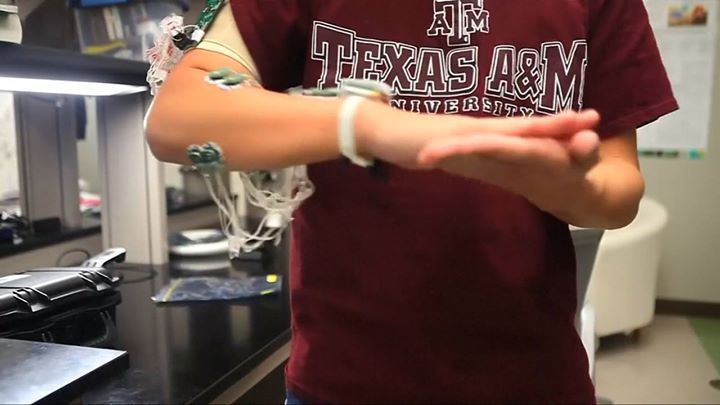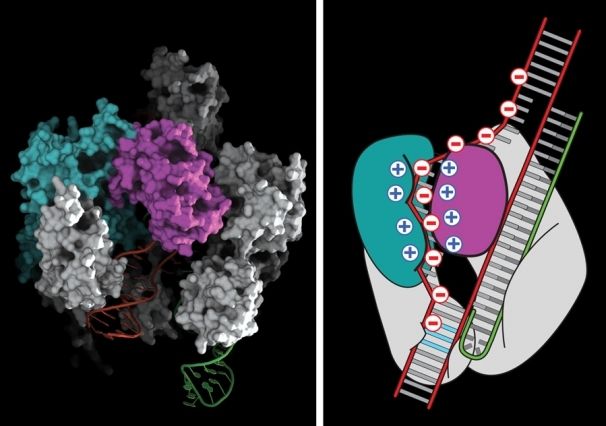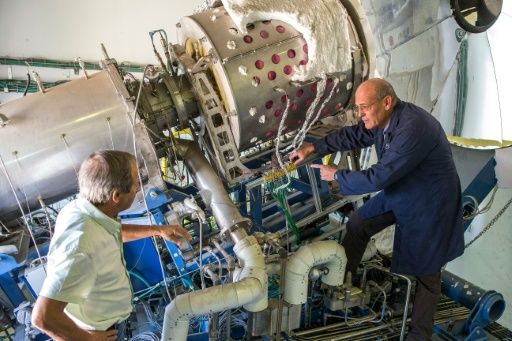Page 10972
Dec 2, 2015
Why the history of maths is also the history of art — By Lynn Gamwell | The Guardian
Posted by Odette Bohr Dienel in categories: mathematics, media & arts
“In her new book Mathematics and Art, historian Lyn Gamwell explores how artists have for thousands of years used mathematical concepts — such as infinity, number and form — in their work. Here she choses ten stunning images from her book that reveal connections between maths and art.”
Dec 2, 2015
A Big Win for Cheap, Clean Energy — By Bill Gates | The Gates Notes
Posted by Odette Bohr Dienel in categories: business, energy, environmental, innovation, science
Dec 2, 2015
Telomeres length testing, longevity genotyping
Posted by Klaus Baldauf in category: life extension
Non-invasive telomeres length testing by-mail and longevity genotyping. Custom longevity R&D and telomere protocols, bulk orders.
Dec 2, 2015
Coming to a monitor near you: a defect-free, molecule-thick film
Posted by Shailesh Prasad in categories: computing, materials, nanotechnology, solar power, sustainability
An emerging class of atomically thin materials known as monolayer semiconductors has generated a great deal of buzz in the world of materials science. Monolayers hold promise in the development of transparent LED displays, ultra-high efficiency solar cells, photo detectors and nanoscale transistors. Their downside? The films are notoriously riddled with defects, killing their performance.
Dec 2, 2015
This Gadget Translates Sign Language On The Fly
Posted by Shailesh Prasad in category: futurism

Another big break in the communication barrier: Researchers created a wearable device that translates sign language on the fly. http://voc.tv/1P6L9zh
Dec 2, 2015
Samsung gives you a new way to browse the web — virtual reality
Posted by Shailesh Prasad in categories: internet, mobile phones, virtual reality
Samsung Mobile is building a virtual reality browser.
Maybe it’s my game industry roots talking, but when I think of virtual reality, the last thing I imagine is checking updates on Facebook or poking through a Reddit thread.
Yet come tomorrow, December 2, Samsung is going to provide proof of this concept with a virtual reality web browser called the Samsung Internet for Gear VR. Users of the Samsung S6 family of mobile phones and the Samsung Note 4 or 5 — coupled with the Samsung Gear VR unit — will be able to shake their head in disgust watching Black Friday fight videos and scan for offensive tweets on Twitter from the glorious world of virtual reality. The app will support HTML5 based videos, as well as 3D streaming and 360-degree content.
Continue reading “Samsung gives you a new way to browse the web — virtual reality” »
Dec 2, 2015
MIT, Broad scientists overcome key CRISPR-Cas9 genome editing hurdle
Posted by Shailesh Prasad in category: biotech/medical
Researchers at MIT have engineered changes to the CRISPR-Cas9 gene editing system that significantly reduce “off-target” editing errors. In addition, a new enzyme, eSpCas9, will be useful for DNA editing requiring a high level of specificity.
Dec 2, 2015
For Israeli firm, an answer to global warming blowing in the wind
Posted by Shailesh Prasad in category: sustainability
For an Israeli start-up, one answer to global warming is blowing in the wind. The company called NewCO2Fuels, or NCF, has been developing its own version of a technology that allows heat-trapping carbon dioxide emissions to be captured and recycled back into useable fuel.
It sounds complicated—and it is—but the company’s founders say it holds real potential in the fight against global warming.
Such capture technologies have gained increased attention as countries seek alternative methods of cutting back on greenhouse gas emissions, the main culprit in global warming.

















